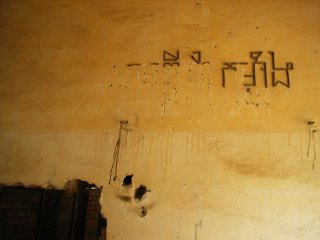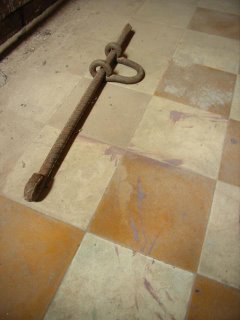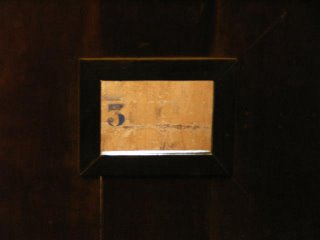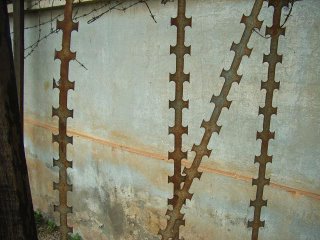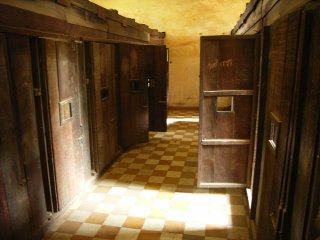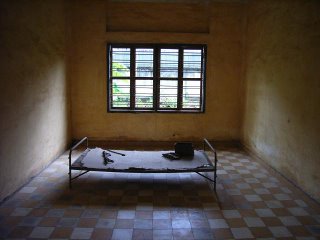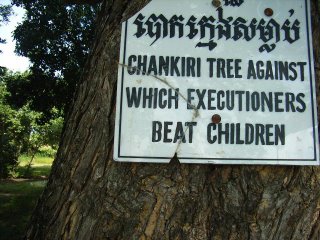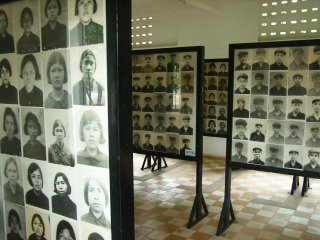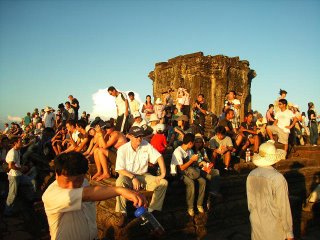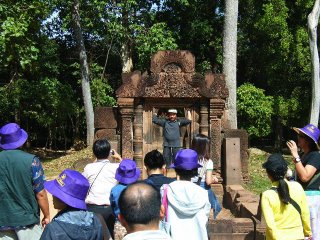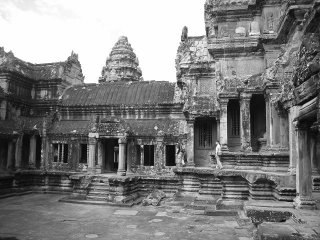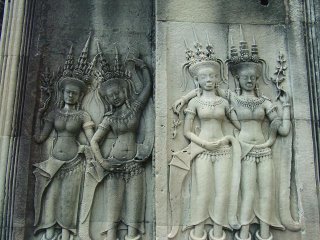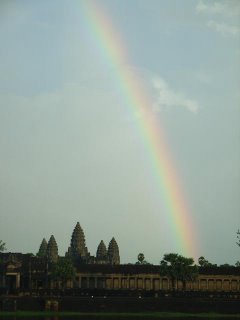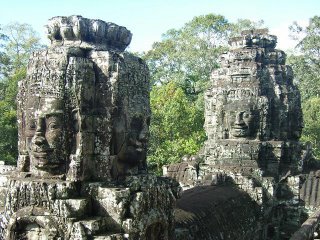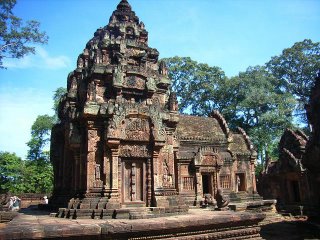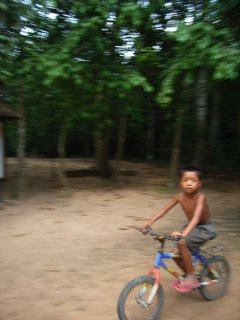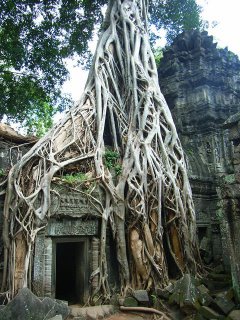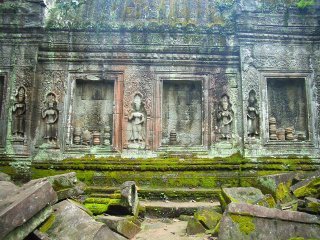State Of My Life Address
(a note: While I have been wanted for some time to write some sort of piece inspired by David Berman's graceful, wonderful poem "Self Portrait at 28", and that was certainly the original influence of what we have here, below, it has happened that the basic premise for this writing is much more close in idea and design to periodic pieces written by my Texan friend Rob for his website. I would like to acknowledge the similarity, in many ways, to Rob's own addresses, and to say thanks to him for demonstrating such a lovely and simple idea. I have enjoyed thoroughly thinking about and writing this piece.)
State of My Life Address, 8 December 2005.
A. Today I have lived for exactly 25 years, which is one quarter of a century. This also means I have been alive for 9131 days exactly.
B. Of this I have lived approximately 3.33% of my life in Canada, and 0.66% of my life in Egypt. I have spent 1.66% of my life attending international CISV camps. Overall, I have spent about 10.83% of my life outside of Australia. Within Australia, I have lived approximately 28% of my life in the small apple farming town of Donnybrook, WA, where I remember cubby houses, and picking chestnuts, and a tame sheep named Bridie who hung out near the swingset. The remaining 61% (or so) of my life I have living in or in the suburbs of the city of Perth.
C. At the moment I am in Phnom Penh, which is the capital city of the Kingdom of Cambodia. There is a steady breeze, sending flags whipping along the banks of the fast-flowing Mekong, where bright orange Buddhist monks stroll in twos and the light is a warm glow against the thin dove-grey sirrus up in the sky. Soon bats will teem from the ceiling of the nearby National Gallery, as the sun disappears, again, behind the horizon, towards Thailand. On the roads, a jumbled flux of traffic - goosehootin' lorries, ambling rickshaws, wedding cars crammed with white dresses, 4WD vehicles, thick wheeled and sparkling, with NGO logos embossed on their front doors, minibuses with hairset Japanese tour groups in matching elasticated sun-visors, and of course, the motorcycles, buzzing and spluttering and weaving and gliding like salmon going upstream. Plus: stump-armed beggars, bare foot kids selling pirated history books, dwarf families huddled and sleeping on doorsteps, young lovers on the riverside, tourists heckling over a dollar, women holding see-through hoses gushing water out on vast green lawns, sparrows and dragonflies, fruit sellers carrying trays of pineapples on their heads, and pencil-thin palm trees, soon to be wrapped in nocturnal smog, the smell of fried noodles, exhaust, and the approaching rains.
D. I currently have no house, no girlfriend, no pets, no car, and no real solid idea of what next year is going to be like, let alone the rest of my life. At the moment my loose and insufficiently researched plan is to complete a Masters programme in Human Rights Practice at Curtin University of Technology, which will take me 18 months or so, although I might transfer across to a Masters in International Development in Melbourne part-way through.
E. There are people in the following places who I miss in varying amounts: Denmark, Germany, Turkey, Egypt, Thailand, the Netherlands, Canada, USA, the UK, Sweden, Palestine, Israel, Australia.
F. I do not belong to any organised religion or sect, but do have a sort of personal faith in the power of creation and nature. I believe in the individual and in the rights of every individual to free-will. I believe most strongly in the Universal Declaration of Human Rights and believe that there is no action or circumstance which can justify the taking away of these basic rights in any way.
G. I am still most confused about what humans are capable of, about love, and about electronic House music.
H. I currently have 126,000 Cambodian Riel, 233 American dollars, 100 Euro dollars and 140 Thai Baht with me, all of which is due to last me until my arrival home in Perth on January 8th, 2006 (one month, exactly).
I. For most of the coming month I will be participating in my sixth CISV programme, an International Peoples Project, involving about 25 other people from Thailand, Indonesia, Japan, Australia, Sweden, Italy and the USA. The project will involve running activities and working together with 60 or so orphans from the Morgan people, a nomadic sea-tribe, whose communities were obviously quite affected by the Indian Ocean tsunami.
J. I have never been shot, been significantly hurt, been arrested, been detained for any long period, been significantly depressed or had anyone particularly close to me die or go missing. I have always had available access to health care, education, emotional support, free movement, clean water, shelter, free speech, food and an income. In all of these ways and more, I am certainly one of the luckier people alive.
K. I am a caucasian Australian male, of British and probably Irish heritage. I currently have very short hair, the shortest hair I have had since Heather's wedding in 2001, and about a half-way growth of whiskers, which tend to grow around my jawline, as well as under my nose, before spreading out a bit on and under my chin. There is very little actual growth on my cheeks themselves. I have brown hair and hazel eyes, and I wear black rimmed glasses without nosepieces. On my wrists I wear: (left) a digital watch I bought in Bangkok in July; (right) a thin pink, blue and orange friendship band Erik from Sweden gave me, a red Brazilian wish ribbon which is frayed and may soon break (making my wishes come true), a blue piece of leather with silver beads on which my name is spelt in Hebrew (a gift from Maytal and Leor), a Palestinian flag velcro wristband I got in Balata refugee camp, and two identical wooden bead bracelets from Bangkok. I also have two plain silver rings, one on each hand - one from my sister Kate, and one from a Thai girl called Katie, who I never called back. Today I am also wearing a blue Gooding Soccer Rec t-shirt, blue denim shorts, olive green underwear, tan socks, brown cord Camper shoes and a black military-style cap I just bought in a Phnom Pehn market. I have two ulcers in my mouth and a slight sunburn on my back obtained from the back of a motorbike around Angkor Wat, and which is leaving behind an unfortunate singlet tan.
L. Recently, I am finding it harder than usual to wake up in the mornings. I am also having significantly more vivid, complicated and surreal night and day dreams. I attribute this to the malarial prophylaxis medication I am currently taking. A recent dream involved saving an orthodox Jewish toddler from a large wave, which is an interesting combination of both prior and future projects in my actual life.
M. I am currently reading Vineland by Thomas Pynchon and listening to In the Reins by Iron & Wine and Calexico. The last movie I saw was Stealth starring Jessica Biel, this was on the aeroplane from Tel Aviv about one month ago. The last girl I kissed was Nam, who was born in the Buddhist year 2529.
N. I can speak a very rougly estimated 500 words in French and 400 words in Arabic as well as tens of thousands of words in English. I can also say small things in Spanish, Swedish, Icelandic and Thai, but not enough that you could say I was even a beginner in any of those languages. I plan to be able to speak English, French, Arabic and Spanish fluently by the end of 2014, as part of my 10 year language goal.
O. In 25 years I have been to 31 countries, earned one undergraduate degree, learned to ski and SCUBA dive, been in love at least twice, seen at least 30 shooting stars, lived in 11 houses and apartments, been to every Australian state except Queensland and acted in 13 plays.
P. On my birthday I am hanging out with two Canadian girls, who I met on the bus from Siem Reap, and who only just met each other as well, and may or not be related. Anna is from Montreal, and her surname is Racine (which means 'root') which it turns out is also the surname of Richelle's paternal grandmother, who is also of Quebecois origin, although she, like Richelle, lives in Nelson, British Colombia. They both have long blonde hair, although Anna's is in dreadlocks, and Richelle's remains flowing and unknotted. We have a one day plan, which involves tomorrow going to Bokor hill station, an abandoned and crumbling French colonial retreat on a mountain in the jungle, and including an old casino, church and a hotel which is apparently very much like the one in The Shining (1980).
Q. I have, so far, received ten (10) emails from seperate friends and family members wishing me a happy birthday, for all of which I am extremely grateful. Almost every single one admitted that they remembered my birthday because of the media coverage of the 25th anniversary of John Lennon's murder, which makes me glad that I tell so many people about the fact that we share this date in such a way. It is certainly these emails which have made this day that little bit better than it would have been otherwise.
R. Today I have eaten: 1 x stick of Wrigley's chewing gum, 1 x plate of spicy ginger beef, with rice, 1 x bowl of museli with fruit salad, 1/2 x bag of dried sweet potato chips, 1/2 x mini watermelon. I have drunk: 1 x can of guava juice, 1 x can of lychee juice, 1 x pineapple shake, a certain quantity of water.
S. I have currently been travelling for five months, less two days. In this time I have participated in a CISV Seminar Camp, as Camp Director, in Beit Guvrin, Israel, for approximately one month; studied Arabic language in Cairo, Egypt for approximately two months; travelled and volunteered as an international activist/human rights observer in the occupied Palestinian Territories for approximately three weeks; travelled and visited friends in Israel for one week more, spent a week doing nothing on the island of Ko Chang, Thailand; worked, in Thailand, for one week as a Fake Scottish Guard in order to promote a new blend of whiskey; and travelled, briefly, in the Kingdom of Cambodia. I have enjoyed this trip very much, mostly because I have met unprecedented quantities of wonderful people, and also because I have been doing something almost the entire time. One of my plans was to write a short novel or a long story or such, while in Thailand, however that has not happened, which is both unfortunate and very predictable. The main reasons for this not happening are the job I got and the trip to Cambodia, which was essential at a specific date (tomorrow) for visa reasons, both of which broke up the time here a lot.
T. The sky outside has blackened, and on the grassy riverbanks of Phnom Penh a group of small tumbling orphans play soccer without shoes, legs twirling and feet pounding on the field, while the girls nearby jump elastics. Their carers, older orphans who now work at the NGO-run resturaunt across the street, look on with extensive grins. The night swells around them, the dark vein of river flowing towards its broad delta in Vietnam, the glow of bars and resturants and street stalls and brothels and mobile phone signs hanging in the roadways. I am here in this internet cafe, and officially I am no longer considered 'youth'. But I'm feeling ok with that, because tonight I could be anywhere on earth doing almost anything possible and virtually no one would know. And then tomorrow I could be elsewhere. In this simple way I feel as though I am pretty much totally free.

